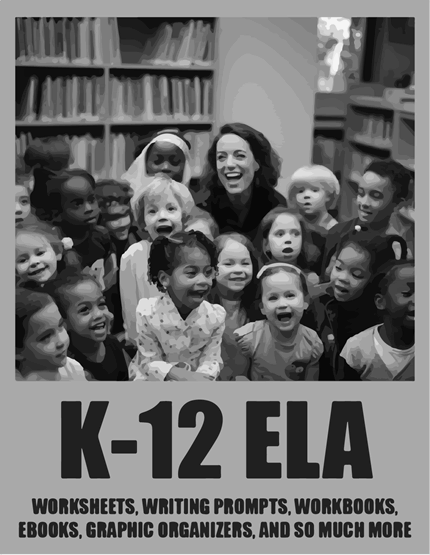
Communication Skills: ELA focuses on developing effective communication skills, including reading, writing, speaking, and listening. These skills are fundamental for success in all aspects of life, from personal relationships to professional endeavors.

Literacy Foundation: ELA builds the foundation of literacy. It teaches students how to read, comprehend, and analyze texts, which are essential skills for accessing and understanding information in various subjects and contexts.
Critical Thinking: ELA encourages critical thinking and analysis. Students learn to evaluate information, question assumptions, and make informed judgments. These skills are crucial for solving problems and making decisions.
Cultural Appreciation: Literature and texts from diverse cultures and time periods are a central part of Language Arts. This exposure helps students appreciate different perspectives, cultures, and literary traditions, fostering empathy and cultural awareness.
Creativity and Expression: ELA provides opportunities for creative expression through writing, storytelling, and interpretation of texts. It allows students to explore their own thoughts, ideas, and emotions through literature and composition.
Empowerment Through Literature: Literature often explores themes of identity, social justice, and empowerment. Reading and discussing literature can inspire students to reflect on their values and become agents of positive change.
Broadening Horizons: Through reading, students can travel to distant lands, experience different time periods, and encounter a wide range of characters and situations. ELA broadens students' horizons and enriches their understanding of the world.
Cognitive Development: ELA supports cognitive development by challenging students to analyze complex texts, synthesize information, and construct coherent arguments. This cognitive exercise strengthens mental faculties.
Lifelong Learning: ELA instills a love of reading and learning. Students who enjoy reading and writing are more likely to continue exploring literature and acquiring knowledge throughout their lives.
Communication Proficiency: Proficiency in Language Arts is essential for effective communication in various academic disciplines and professions. Strong writing and communication skills are highly valued in the job market.

Adaptation to Changing Technology: In the digital age, strong literacy skills are needed to navigate and critically evaluate the vast amount of information available online. ELA helps students become discerning consumers of digital content.
Preparation for College and Career: ELA prepares students for success in higher education and a wide range of careers. It hones skills in research, analysis, and argumentation that are valuable in academic and professional settings.
Enjoyment and Personal Growth: Many students find great pleasure in reading and writing. ELA provides an avenue for personal enjoyment, self-discovery, and emotional growth through literature and creative expression.
Promotion of Empathy: Literature often delves into the experiences and emotions of diverse characters. This can promote empathy and understanding, helping students relate to people from different backgrounds and circumstances.
Inquiry and Exploration: ELA encourages students to ask questions, explore ideas, and seek answers. It fosters a sense of curiosity and intellectual exploration.
English Language Arts plays a pivotal role in education by fostering essential communication and critical thinking skills, promoting cultural awareness and empathy, and offering opportunities for personal growth and enjoyment. It equips students with tools for success in both academic and life pursuits, making it a central and enjoyable component of the K-12 curriculum.